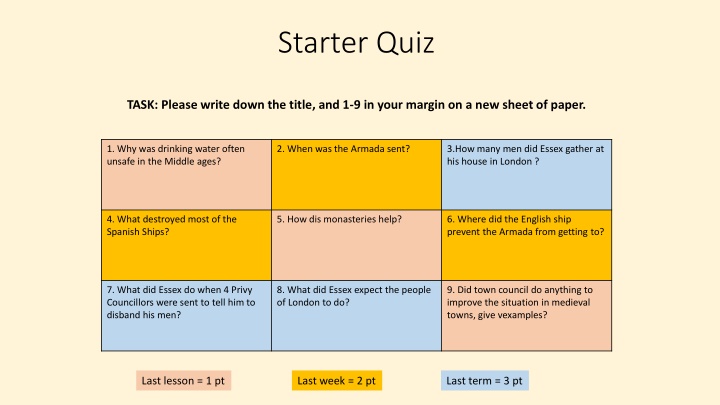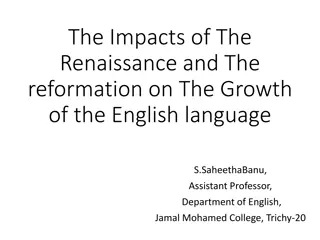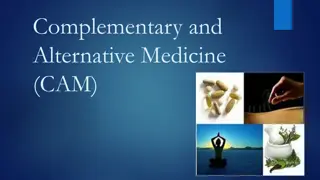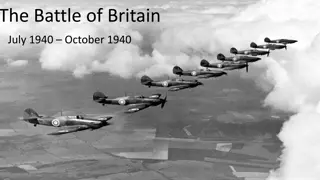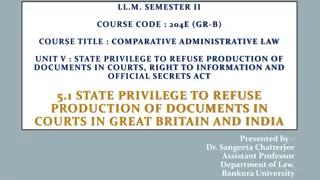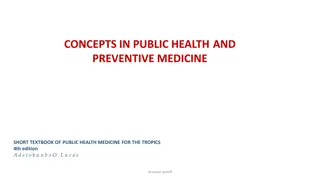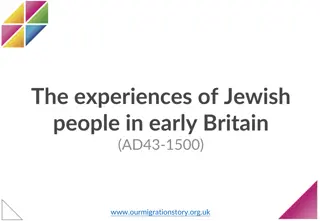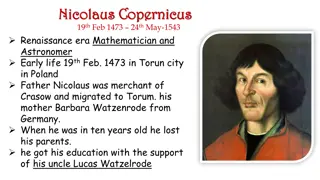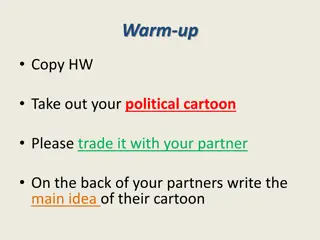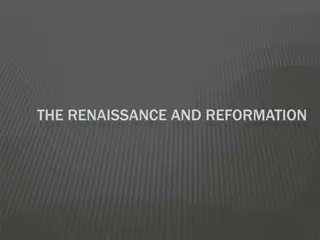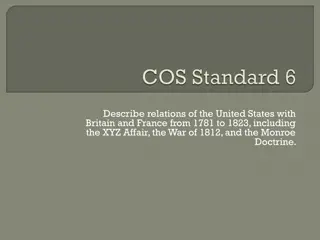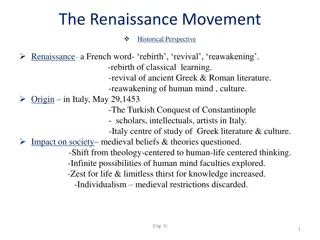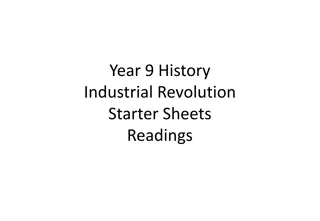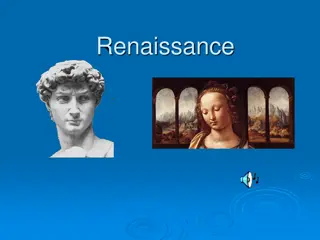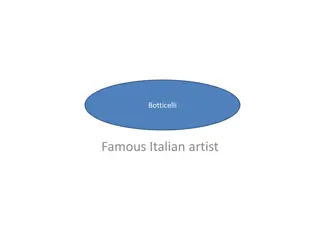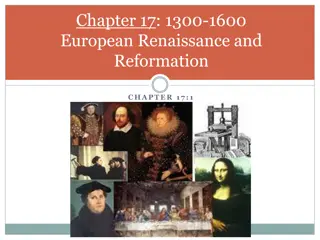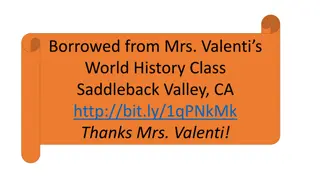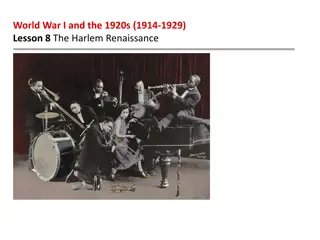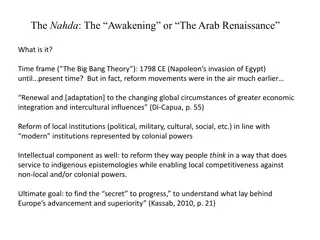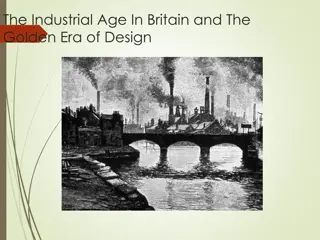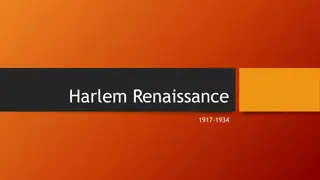Impact of the Renaissance on Medicine in Early Modern Britain
In the early modern period in Britain from 1450 to 1800, the Renaissance brought about significant changes to medicine. This era marked a rebirth in Europe with increased interest in classical architecture, art, and scientific advancements. The impact of the Renaissance on medicine included the challenging of traditional views, the development of new inventions like the printing press and microscope, and religious changes such as the Reformation. Notable figures like Andreas Vesalius, Ambroise Paré, William Harvey, Thomas Sydenham, and John Hunter made significant contributions that influenced the course of medical practices during this period.
Download Presentation

Please find below an Image/Link to download the presentation.
The content on the website is provided AS IS for your information and personal use only. It may not be sold, licensed, or shared on other websites without obtaining consent from the author.If you encounter any issues during the download, it is possible that the publisher has removed the file from their server.
You are allowed to download the files provided on this website for personal or commercial use, subject to the condition that they are used lawfully. All files are the property of their respective owners.
The content on the website is provided AS IS for your information and personal use only. It may not be sold, licensed, or shared on other websites without obtaining consent from the author.
E N D
Presentation Transcript
Starter Quiz TASK: Please write down the title, and 1-9 in your margin on a new sheet of paper. 1. Why was drinking water often unsafe in the Middle ages? 2. When was the Armada sent? 3.How many men did Essex gather at his house in London ? 4. What destroyed most of the Spanish Ships? 5. How dis monasteries help? 6. Where did the English ship prevent the Armada from getting to? 7. What did Essex do when 4 Privy Councillors were sent to tell him to disband his men? 8. What did Essex expect the people of London to do? 9. Did town council do anything to improve the situation in medieval towns, give vexamples? Last lesson = 1 pt Last week = 2 pt Last term = 3 pt
Last lesson = 1 pt Last week = 2 pt Last term = 3 pt 1. Toilets overhanging streams/ rivers that people used for drinking water/ wells contaminated by cesspools 2. 1588 3. 300 4. Wind/ rocks 5. They understood the need for clean water and had physic gardens where they grew herbs that would help the sick 6. The Ise of Wight/ the Solent 7. He took them hostage 8. Rise up in support of him 9. Yes, Coventry- banned waste disposal in the River Sherbourne 9 nine times, made rules that people needed to keep the street clean outside their homes and set up 5 designated waste disposal points 1. 2. Give yourself a score out of 18 In a green pen, you are going to write down which topic you need to develop you understanding of (Public Health and Christianity ; war with Spain; Essex Rebellion) 3. For next lesson you need to create revision material on that topic. In that next lesson, you will be given a new quiz just on the topic you are revising.
Medicine Lesson 3: The beginnings of Change: Early modern Britain 1450-1800 Even better: Good learning: Great learning: Evaluate the effectiveness of traditional and new techniques Understand the impact of the renaissance on medicine Explain why there was opposition to change Key Words:
Understand the impact of the renaissance on medicine Renaissance means re-birth. In Europe in the mid-fifteenth century there was first of all a growth in the celebration of, interest in and use of Classical (Greek and Roman) architecture, paintings, statues and books. There was also the development of the scientific method which led to the challenging of traditional views as people closely observed how things worked. There were new inventions such as the printing press and the microscope. There were religious changes as well with the Reformation, notably in England which split from the Catholic Church.
Understand the impact of the renaissance on medicine What has changed? Explain the careers, key ideas, traditions challenged and reactions to Andreas Vesalius P32 Ambroise Pare P32 William Harvey p34 Thomas Sydenham p35 John Hunter p36
Explain why there was opposition to change Based on what you found creating your table why was there opposition to change?
Evaluate the effectiveness of traditional and new techniques Had the key individuals you ve studied improved medicine? What evidence is there that traditional methods were effective?
Medicine Lesson 3: The beginnings of Change: Early modern Britain 1450-1800 Even better: Good learning: Great learning: Evaluate the effectiveness of traditional and new techniques Understand the impact of the renaissance on medicine Explain why there was opposition to change Key Words:
